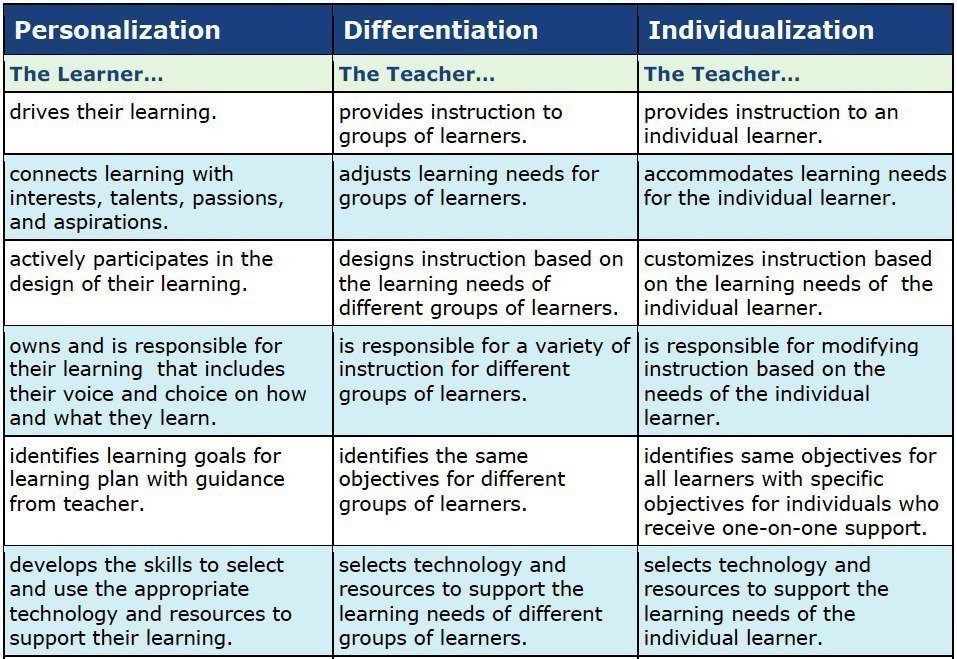MSM 383: Totally Accurate Podcast! Unpronounceable. Imagination. Differentiation.
Jokes You Can Use:
Forward I’m heavy, backward I’m not. What am ?
- ton
A man has a bee in his hand. What’s in his eye?
- Beauty
What tastes better than it smells?
- Tongue
Imagine you’re in a dark room with no windows and a locked door. How do you get out?
- Imagine you have a key
I’m light as a feather, but the longer you hold me, the harder I am to keep. What am I?
- Breath
Two fathers and their two sons go hunting in the woods. They each shoot a rabbit and bring it home. They don’t lose any rabbits but only have three when they arrive. How is that possible?
- Three generations.
Advisory:
Words:
- Kummerspeck (German) – weight gained from emotional overeating
- Tartle (Scots) – The feeling of hesitation right before you have to introduce someone whose name you don’t remember
- Mamihlapinatapai (Yaghan language of Tierra del Fuego) – the look shared between two people when both want the other to do something they both want, but neither want to do first
- Backpfeifengesicht (German) – a super punchable face
- Pelinti (Guli, Ghana) – to move hot food around in your mouth
- Yuputka (Ulwa) – the phantom feeling of something crawling on your skin, like when you’re walking alone in the woods
- Zhaghzhagh (Persian) – the chattering of teeth from the cold or from anger
- Lagom (Swedish) – just right (not too much, not too little)
- Seigneur-terraces (French) – café patrons who sit at the shop for a long time but don’t spend much money
- Luftmensch (Yiddish) – an impractical dreamer
- Sobremesa (Spanish) – happy, relaxed conversation that you partake in after a good dinner and drinks with friends
- Shemomedjamo (Georgian) – translates to “I accidentally ate the whole thing,” when you’re really full but you can’t stop eating
- Gigil (Filipino) – wanting to pinch something super cute
- Pana Po’o (Hawaiian) – to scratch your head to help you remember something
- Greng-jai (Thai) – The feeling of not wanting to ask for a favor because it will be a pain for the other person
- Iktsuarpok (Inuit) – the feeling of anticipation when you’re waiting for someone to show up at your house
- Koi No Yokan (Japanese) – Upon meeting a person, the immediate feeling that you two are going to fall in love
- Zeg (Georgian) – the day after tomorrow
Middle School Science Minute
by Dave Bydlowski (k12science or davidbydlowski@mac.com)
Part 5 — Peers
This is the fifth in a seven part podcast series on the book, “Lifelong Kindergarten,” written by Mitchel Resnick.
This fifth podcast focuses in on chapter four in the book, “Peers.” In chapter three, Mitchel emphasizes:
Beyond Rodin
Learning Communities
Openness
Culture of Caring
Teaching
Tensions and Trade-Offs: Expertise
From the Twitterverse:
Some students really benefit from a list of sentence starters to get them going. You can grab this freebie here https://buff.ly/2odmaSq Note: Clicking on link will as you to join a link.
Differentiation Is. Differentiation Is Not. #satchat
Connie Hamilton Ed.S @conniehamilton
There seems to be a lot of talk about choice/voice around differentiation – while it’s helpful for Ts to consider S interests. Differentiated instruction is largely planned an intentional to allow all students to reach the same learning goal – maybe in different ways. #satchat

Connie Hamilton Ed.S @conniehamilton
Let’s not confuse differentiation with “dummy-down” for struggling learners. Allow them access to rigorous and complex concepts by differentiating the content, process, or product. #satchat

Differentiate by offering student choice with Passion-Based Learning!! Genius Hour and the Four Pathways to Genius #satchat Read about how we do it here: http://wp.me/p5D09s-nC

A2: Genius Hour is an excellent example of providing Ss voice, choice and is an excellent example of differentiating learning to meet all Ss interests & passions! #SatChat

Miriam GuerreroCheuk @MiriamCheuk
A1: Differentiation of Instruction entails using methods that meet the needs of every unique learner in the classroom to maximize their growth & success. 1 size doesn’t fit all. The teacher adapts content, process & product. #satchat

5 Fantastic Word Cloud Tools for Chromebooks http://www.controlaltachieve.com/2016/04/chromebook-word-cloud-tools.html … #edtech

#mschat every Thursday at 8:00 pm Eastern Standard Time. And as Troy says, “The Twitter never stops!”
Strategies:
An unexpectedly positive result from arts-focused field trips
The surprising result is that students who received multiple field trips experienced significantly greater gains on their standardized test scores after the first year than did the control students.
The treatment and control groups do not differ in their baseline test results and otherwise appear similar, so these changes seem to be the result of the treatment.
We still do not believe that arts instruction and experiences have a direct effect on math or ELA ability. We think this because the bulk of prior research tells us so, and because it is simply implausible that two extra field trips to an arts organization conveyed a significant amount of math and ELA knowledge.
Our best guess is that test scores may have risen because the extra arts activities increased student interest and engagement in school.
Maybe arts-focused field trips do not teach math or reading, but they do make students more interested in their school that does teach math and reading.
The odd thing about trying to write a paper with these results to present at conferences and submit to a journal is that there is strong pressure for us to pretend like we expected our findings all along. Discussants and reviewers generally don’t want to hear that you found something you didn’t expect and don’t really know why.
Free Math App
Students digitally record step-by-step math work.
Teachers simultaneously review all assignments with complete solutions grouped by similar final answer.
Free for teachers and students.
No account setup required. Student work and grading feedback both save as files that integrate seamlessly with standard LMS tools.
Resources:
Simple Articulation Strategy: 5 Ins and 5 Outs
As I researched articulation strategies, I found “5 Ins and 5 Outs” mentioned in a Teaching Channel video. The basic idea is that teachers identify 5 “outs” or skills students will master by the time they leave their class. These “outs” become the “ins” for the next grade level. So, if I say that students will leave my 9th grade English class able to “correctly cite strong textual evidence that supports analysis” then the 10th-grade teachers can feel confident that the incoming sophomores will be able to demonstrate that skill.
It was interesting to work with a room full of 6-8 grade English language arts teachers as they worked on their ins and outs. A few things became clear:
#1 Teachers used different language to describe similar strategies.
#2 Teachers interpret the standards differently.
#3 Transparency between grade levels helps teachers identify skill gaps.
We worked collaboratively on a shared Google Document so teachers could see the outs for the previous grade, ask questions, and make suggestions. The conversations about what teachers were seeing in terms of skills at the start of the school year helped to refine the outs for the previous year.
http://catlintucker.com/2018/02/simple-articulation-strategy-5-ins-and-5-outs/
ScienceLinks
Lots of Science Lessons.
http://sciencenetlinks.com/lessons/
QRCode Creator – Bulk
Create QR codes in bulk. (like a whole classroom full of links).
https://qrexplore.com/generate/
StoryMap JS
Maps that tell stories.
https://storymap.knightlab.com/
Anchor
Podcast Creation Made Easy
Web Spotlight:
Is Gates America’s Dumbest Smart Guy?
If you glanced at EdWeek’s Teacher Beat blog last week, you could be forgiven for thinking that Bill Gates had joined the growing list of tech “regrets” writers. It’s a cool new writing genre in which some longtime techy reformster announces that he’s had an epiphany and realized all by himself that there’s something fundamentally ineffective, misguided and just plain wrong with the baloney he’s been frying up lo these many years.
If we look at last fall’s speech (both the pre-speech PR and the actual edited-down version he delivered), we can see that Gates knows he’s supposed to be learning things, that a shift in direction and emphasis needs to look like a pivot based on a learning curve, and not just flailing off blindly in another direction because the previous flails didn’t turn out like you hoped (against all evidence and advice) they would.
What looks on the surface like an admission of failure turns out to be an assignment of blame. Small schools, teacher evaluation, merit pay, and the ever-unloved Common Core have all been a bust, and yet somehow, their failure is never the result of a flawed design, a bad concept, or being flat-out wrong about the whole picture. What Gates invariably announces he’s “learned” is that he was basically correct, but he underestimated just how unready people were to welcome his rightness, and he needs to tweak a few features.
Now, if I order miracle hair grower on line and I use it, and my hair doesn’t grow back, I might be inclined to question whether or not the hair grower was as miraculous as it claimed. If I had a great system for improving teachers, and I used it, and it didn’t look like it worked, I might question whether my brilliant ideas were really brilliant or not. In short, I might wonder if I weren’t, you know, wrong. But not Gates. He gives us the three measures for success– good pilot, self-sustaining system, and spreading to other locations. Then he provides the excuses for why his teacher system failed all three.
http://curmudgucation.blogspot.com/2018/02/is-gates-americas-dumbest-smart-guy.html
Totally Accurate History
Kids say the darndest things! From explaining the extinction of the dinosaurs to detailing the bizarre history of the waffle, these precocious teachers are way more entertaining than a textbook… and maybe even a tiny bit right.
https://www.lightworkers.com/original-series/totally-accurate-history/
Random Thoughts . . .
Personal Web Site
Click the Play button below to listen to the show!


